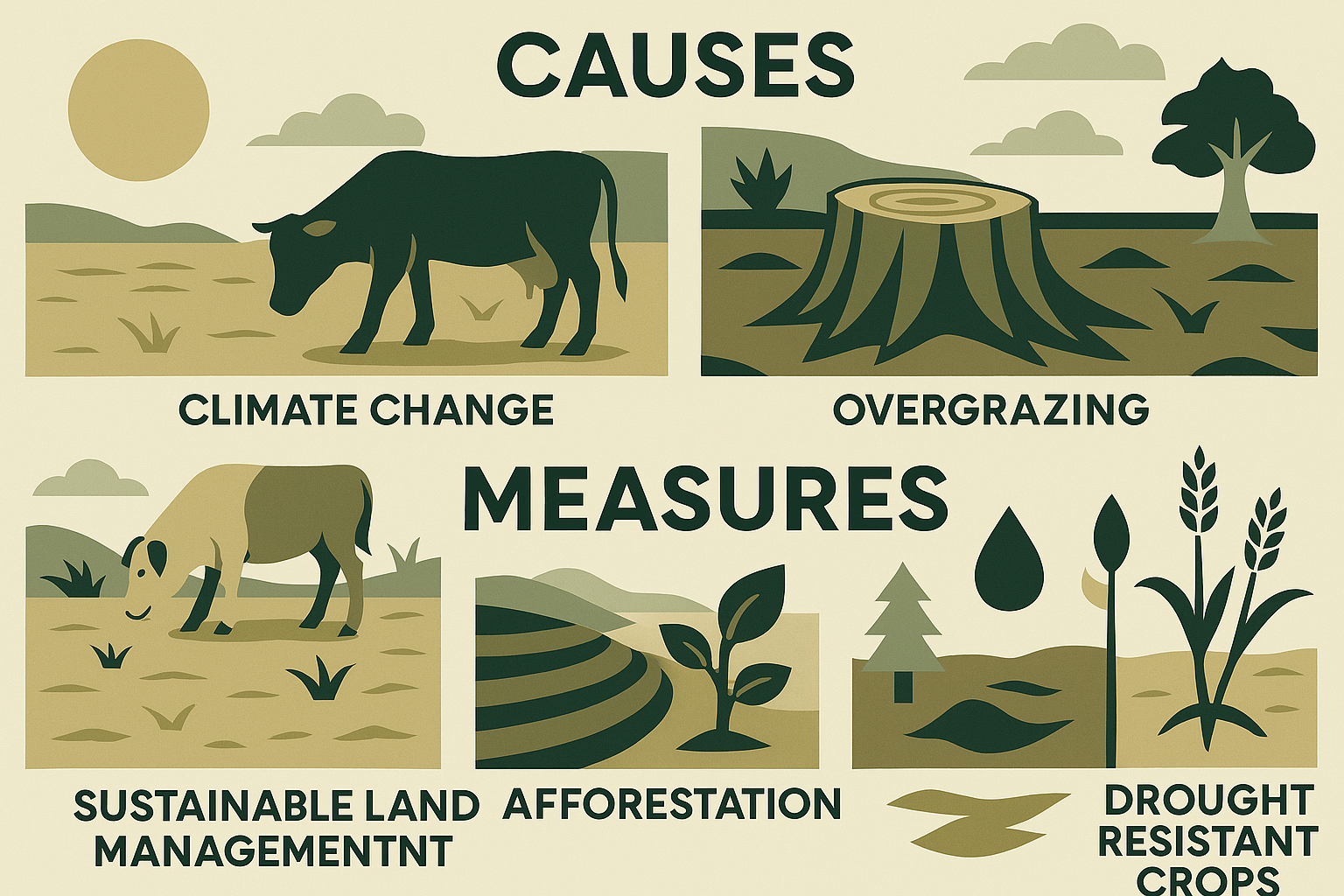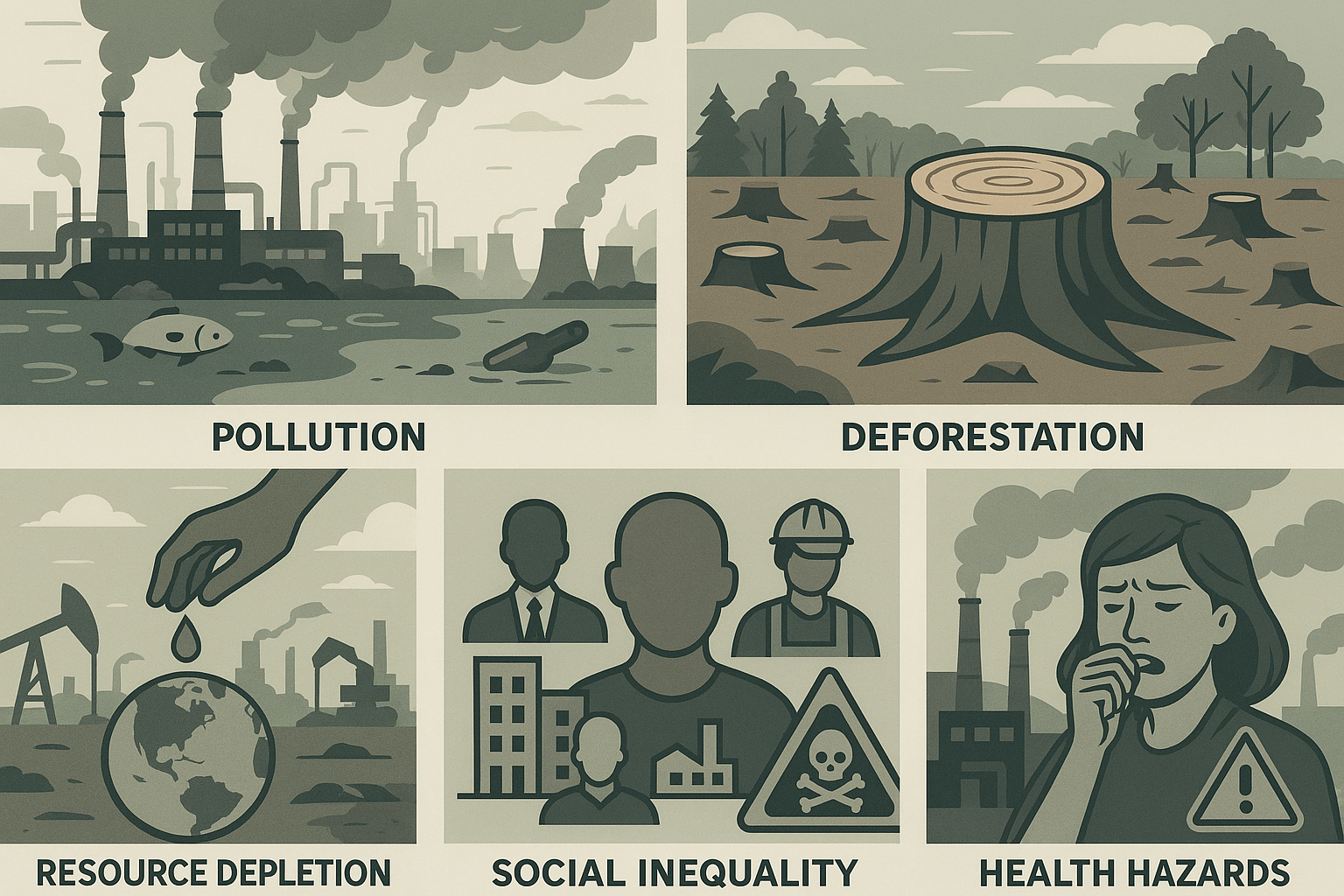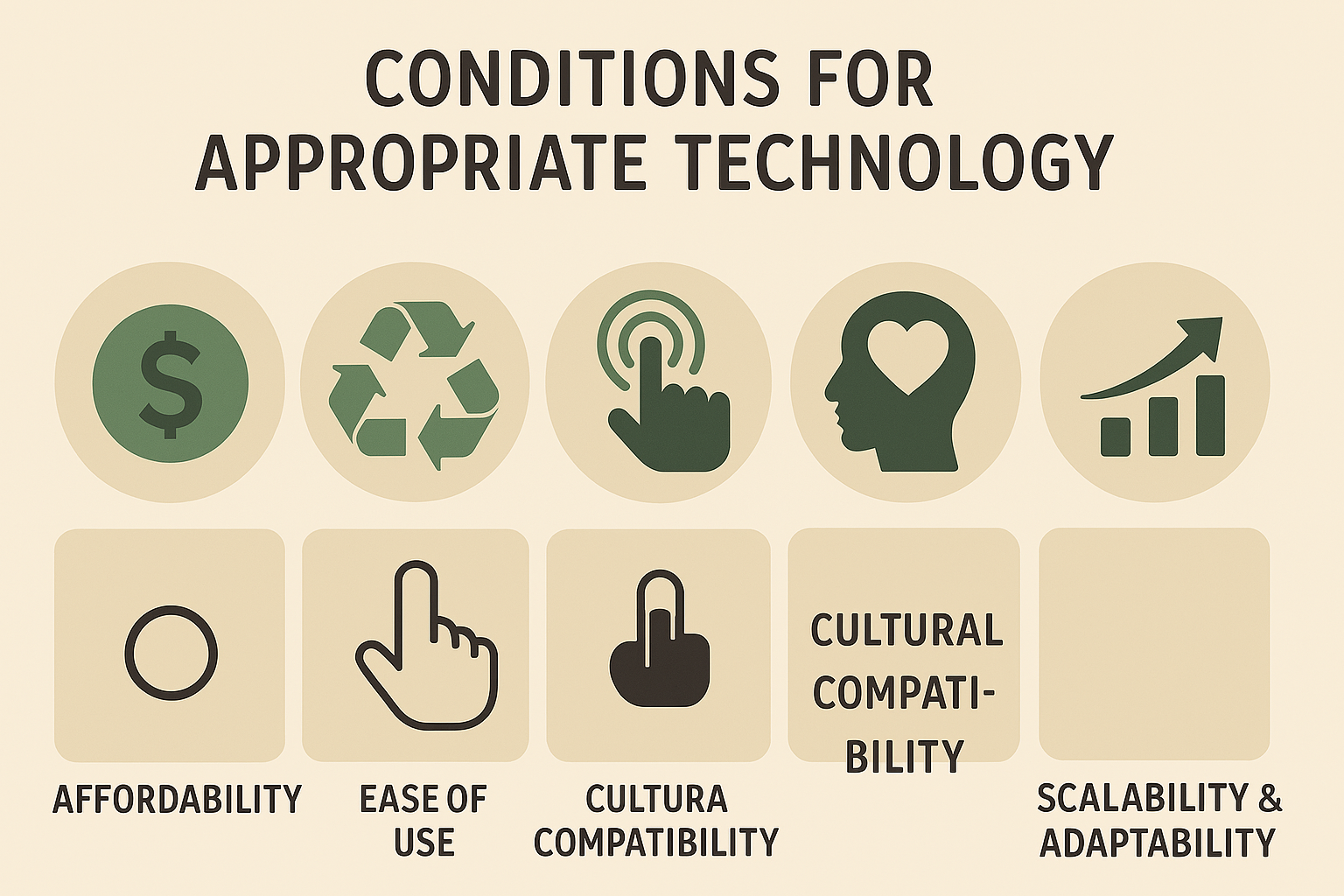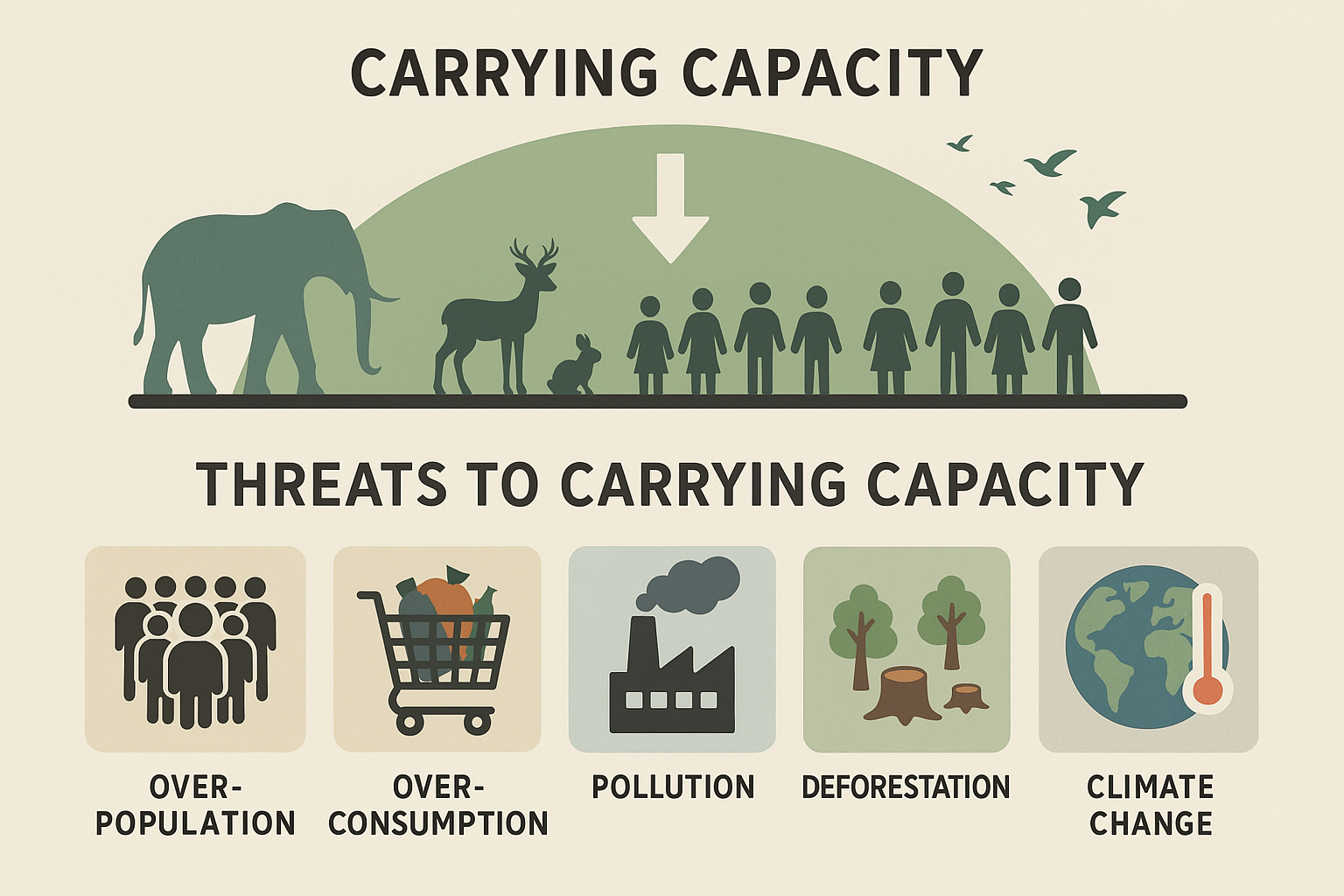-
 Continue reading →: Lifestyle and Consumerism
Continue reading →: Lifestyle and ConsumerismThe concepts of lifestyle and consumerism have become central to contemporary discussions on environmental degradation, social inequality, and sustainable development. A lifestyle refers to the set of habits, behaviors, values, and daily choices that shape an individual’s way of living. Consumerism, on the other hand, is a socio-economic ideology that…
-
 Continue reading →: What are the causes of desertification and droughts? List the measures undertaken to combat them.
Continue reading →: What are the causes of desertification and droughts? List the measures undertaken to combat them.environmental issues that significantly affect the health of ecosystems and the livelihoods of millions, especially in arid and semi-arid regions. Desertification refers to the degradation of land in dry areas resulting from various factors, including climatic variations and human activities. It leads to the transformation of fertile land into desert-like…
-
 Continue reading →: List any five harmful consequences of industrialization on environment and society.
Continue reading →: List any five harmful consequences of industrialization on environment and society.Industrialization, while being a driver of economic growth, modernization, and technological advancement, has also had numerous adverse impacts on the environment and society. The large-scale mechanization, establishment of factories, mass production, and resource-intensive nature of industrial processes have led to a significant transformation of both natural ecosystems and social structures.…
-
 Continue reading →: State any five conditions needed for a technology to be appropriate.
Continue reading →: State any five conditions needed for a technology to be appropriate.The concept of appropriate technology emerged prominently during the mid-20th century as a response to the realization that not all technological advancements necessarily benefit all societies in equal measure. Especially in developing countries, where resources, education levels, and social structures differ markedly from industrialized nations, the need for technology that…
-
 Continue reading →: Explain the concept of Carrying Capacity. Also list some threats to carrying capacity
Continue reading →: Explain the concept of Carrying Capacity. Also list some threats to carrying capacityThe concept of Carrying Capacity originates from ecology and refers to the maximum number of individuals or organisms that an environment can support sustainably without degrading the natural resources or ecosystem services upon which they depend. In a broader context, it has been extended to human populations, suggesting the maximum…
-
What are Eco-villages? Discuss their importance
Published by
on
Continue reading →: What are Eco-villages? Discuss their importanceEco-villages are intentional communities that aim to live in harmony with nature by adopting sustainable practices in housing, food production, energy use, waste management, and social organization. These communities are often built around a shared vision of ecological responsibility, social cohesion, and economic resilience. Eco-villages can vary widely in size…
-
Continue reading →: Define Traditional Knowledge. Explain its application in health and medicine
Traditional Knowledge (TK), also known as Indigenous Knowledge or Local Knowledge, refers to the long-standing customs, beliefs, innovations, and practices developed by indigenous and local communities over generations. It is often transmitted orally and closely linked to the community’s way of life, environment, and spiritual beliefs. This knowledge system encompasses…
-
Continue reading →: What is Liberalism?
Introduction Liberalism is one of the most influential political ideologies in modern political thought. It advocates for individual liberty, equality, and democracy while upholding the rule of law and constitutional governance. Emerging in Europe during the Enlightenment period, liberalism became a foundational principle in the development of modern democratic states.…
-
Continue reading →: Nature of India-Canada relations during the Cold War period
India and Canada, despite being geographically distant, developed diplomatic relations during the Cold War period that were characterized by a mix of cooperation, divergence, and occasional tensions. The nature of these relations can be analyzed through several key dimensions: economic cooperation, diplomatic alignment, foreign policy differences, and cultural exchanges. 1.…
-
Continue reading →: Canada’s trade policy
Canada’s trade policy plays a pivotal role in shaping the country’s economic development, as it is a small, open economy heavily reliant on international trade. Historically, Canada has been a strong advocate for free trade and open markets, reflecting its commitment to an international rules-based trading system. The core principles…
-
Continue reading →: Role of the Canadian government in providing human security
Human security is a relatively recent and evolving concept that focuses on the protection of individuals from a variety of threats—both military and non-military—in order to ensure freedom from fear, freedom from want, and freedom to live with dignity. The Canadian government has been an advocate of the human security…
-
Continue reading →: Liberal internationalism
Liberal internationalism is a prominent theory and ideology within the field of international relations that emphasizes the importance of international cooperation, democratic governance, and the rule of law in creating a peaceful and prosperous global order. It builds upon the principles of liberalism—an ideology that champions individual freedoms, rights, and…
WELCOME!
Yearly Archive
Categories List
- biodiversity
- Canada
- culture
- democracy
- economy
- European Union
- ignou
- india
- International Relations
- nature
- news
- political-philosophy
- political-science
- sustainability
- Uncategorized
- UPSC
Tag Cloud
agriculture ai business Canada china climate climate-change conservation diversity ethics european-union farming feminism finance gandhi health history ignou india KNOWLEDGE liberty mahatma-gandhi marxism nationalism nonviolence philosophy political-philosophy political-science political-theory politics poverty PSC religion renewable-energy russia socialism sociology sustainability sustainable-agriculture sustainable-living technology terrorism travel UPSC women
Term List
- africa
- agriculture
- ai
- aristotle
- bangladesh
- bjp
- business
- Canada
- china
- christianity
- climate
- climate-change
- conservation
- critical-theory
- digital-marketing
- diversity
- ecology
- elections
- ethics
- europe
- european-union
- faith
- farming
- fascism
- featured
- feminism
- feminist
- finance
- frankfurt-school
- freedom
- fundamentalism
- gandh
- gandhi
- gardening
- gender
- gender-equality
- global-warming
- government
- health
- herbs
- history
- human-rights
- ignou
- india
- inequality
- intellectual-property
- italy
- karl-marx
- KNOWLEDGE
- language
- law
- learning
- lenin
- liberty
- lifestyle
- linguistics
- mahatma-gandhi
- marx
- marxism
- mental-health
- MPS
- multicultural
- multiculturalism
- nationalism
- natural-remedies
- nonviolence
- organic-farming
- patents
- philosophy
- political-philosophy
- political-science
- political-theory
- politics
- pollution
- poverty
- PSC
- recycling
- religion
- renewable-energy
- russia
- socialism
- sociology
- soviet-union
- spirituality
- sustainability
- sustainable-agriculture
- sustainable-living
- teaching
- technology
- terrorism
- trademarks
- travel
- UPSC
- water
- water-conservation
- wellness
- wildlife
- women
- women-empowerment





